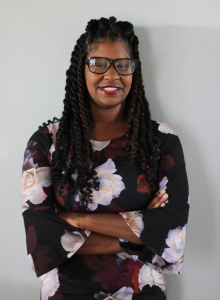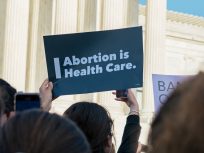 Nia Weeks is the Founder and Executive Director of Citizen SHE United, an advocacy group in Louisiana that is building an aligned base of Black Women who inform, advocate for and enact a collective policy agenda to address the needs of Black Women across the state.
Nia Weeks is the Founder and Executive Director of Citizen SHE United, an advocacy group in Louisiana that is building an aligned base of Black Women who inform, advocate for and enact a collective policy agenda to address the needs of Black Women across the state.
Since the conceptualization of this country, Black women have played an important role in every major American milestone. We have allowed the strength of the nation to be built on our endurance without regard to our aptitude, and now is time for us to stand in the fullness of our power.
The beauty of maneuvering as a Black female is diluted by the disenfranchisement that exists in both our political process, and in the political and private policies that work to diminish our voices. The policies that cause us not to live our full lives were created, and continue to be sustained, by people and entities that do not see us as full human beings.
If we are ever going to change those policies, we must first throw out the policymakers.
But we have a tricky relationship with the one party that sometimes does our bidding. The Democratic party calls on us, Black Women, to provide solutions to the issues concerning all the American populous. They rely on our votes to get – and stay – in office. We do this service for the party but, in return, we rarely see real solutions for the issues that directly affect us and our families.
Oftentimes, the specific issues that make it difficult to navigate society in a black feminine body are not bifurcated from our white female counterparts. This creates a false narrative that we are being acknowledged and heard. As Black Women we have a duality to overcome: our race and our gender.
[dropcap]T[/dropcap]he history of Black women in America is one of power juxtaposed with constant disenfranchisement. The ratification of the Constitution granted discretion to individual states on how to qualify voters. When the South lost the Civil War, three Reconstruction Amendments were ratified and limited this discretion. The 13th and 14th amendments abolished slavery and granted citizenship, respectively. The 15th Amendment provides the right to vote regardless of “race, color, or previous condition of servitude.” After extensive advocacy, white women were granted the right to vote on May 19, 1919. The suffrage movement disregarded Jim Crow laws ruling the South, not to mention the incessant intimidation and economic disparities that the Black women who marched with them faced. It wasn’t until the Voting Rights Act of 1965 was passed that Black women could finally participate in the electoral process.We have allowed the strength of the nation to be built on our endurance without regard to our aptitude, and now is time for us to stand in the fullness of our power.
The reason that dissenters spent so much time and effort preventing the Black female community from voting, and continue to create systems that make voting difficult, is because they know how powerful our vote is. According to the Washington Post, in 2008 and 2012, black women voted at a higher rate than any other group. Four years ago, 74 percent of eligible black women went to the polls — and 96 percent voted for President Obama.
We have a duty not only to our children and community, we have a duty to ourselves. We have a right to live not only within the freedom that is granted to us by the Constitution, we have a right to live within the freedom granted by our mere existence. Our power is real, because our voting power will change the world. We can talk about getting free but nothing will change until we vote.
Nia Weeks is the Founder and Executive Director of Citizen SHE United, an advocacy group in Louisiana that is building an aligned base of Black Women who inform, advocate for and enact a collective policy agenda to address the needs of Black Women across the state. She is the former director of Policy and Advocacy at Women With A Vision located in New Orleans Louisiana. Nia is a native of New Orleans, and has spent years fighting for the rights of women, children, and families. Nia currently resides in New Orleans and is the mother of four children, Taylor 19, Jordan 18, Peyton 14 and Cameron 10.
Editors Note: This article is part of our Women’s Movement Series that will curate articles written and supported by activists and advocates working to create a more inclusive, global women’s movement. It will run from October 2018 to January 2019. It seeks to amplify and highlight issues that need to be heard in our feminist movement. If you have ideas for an article or would like to contribute, contact us at editors@staging.lawatthemargins.com




